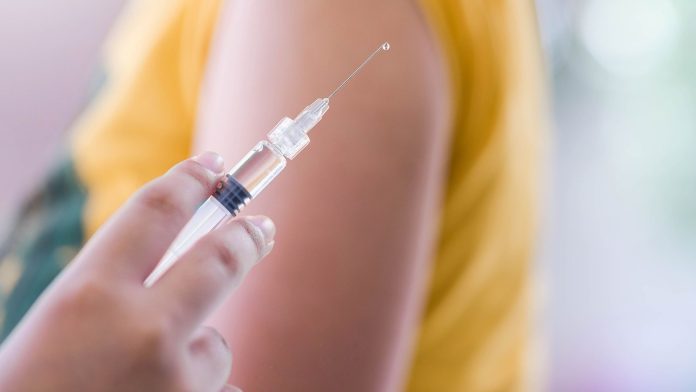According to Moderna’s CEO, vaccines against cancer and heart disease could be ready by the end of the decade.
Dr. Paul Burton believes that advances in the field of mRNA — the technology used to create his company’s blockbuster Covid injection — have ushered in a golden age of vaccines.
He thinks that by 2030, vaccines for “all types” of incurable illnesses will be available, saving “hundreds of thousands, if not millions, of lives.”
Early research has already showed ‘tremendous promise,’ he says. These will, however, be highly tailored and pricey, rather than your average vaccine.
Heart disease and cancer are the leading causes of death in the United States, accounting for 1.3 million deaths each year, or more than one-third of all recorded deaths.
‘We will have that vaccine, and it will be highly successful, and it will save hundreds of thousands, if not millions, of lives,’ Dr Paul Burton, the vaccine maker’s chief executive, told The Guardian.
‘I think we will be able to offer personalized cancer vaccines against multiple different tumour types to people around the world.’
He added: ‘I think what we have learned in recent months is that if you ever thought that mRNA was just for infectious diseases, or just for Covid, the evidence now is that that’s absolutely not the case.
‘It can be applied to all sorts of disease areas; We are in cancer, infectious diseases, cardiovascular disease, autoimmune diseases, rare diseases.
‘We have studies in all of those areas and they have all shown tremendous promise.’
Dr. Burton did not elaborate on how the vaccines would function, but earlier research has shown that mRNA can be utilized to fight cancer.
MRNA vaccines operate by telling cells to make a protein that stimulates an immune response against a certain pathogen, such as Covid.
Scientists believe that by modifying these instructions, cells can be induced to produce antigens from the surface of cancer cells, alerting the immune system to cancer cells and sparking an attack.
Doctors would first collect a biopsy from the person’s tumor before vaccinating them against cancer.
They would then detect the antigen on the cancer cells and program the mRNA vaccination to cause the cells to produce the same antigen.
The vaccine would then be given to the patient, causing their cells to produce the antigen and eliciting an immune reaction against it.
Immune cells would subsequently be trained to eliminate any remaining cancer cells in the body and to track down any returning cancer cells.
-All Rights Reserved-
Permission to use any material, including text, still photograph, audio and video from this site is granted subject to permission being formally sought and, if granted, appropriate credit must duly be given to The News Room as the source.


 Stay connected, get exclusive updates, and be the first to know about all the exciting things happening. Whether you’re looking for insights, tips, or just want to be part of an amazing community, our WhatsApp group is the place to be!
👉 Don’t miss out. Click the link and be part of something awesome! 🚀
Stay connected, get exclusive updates, and be the first to know about all the exciting things happening. Whether you’re looking for insights, tips, or just want to be part of an amazing community, our WhatsApp group is the place to be!
👉 Don’t miss out. Click the link and be part of something awesome! 🚀



